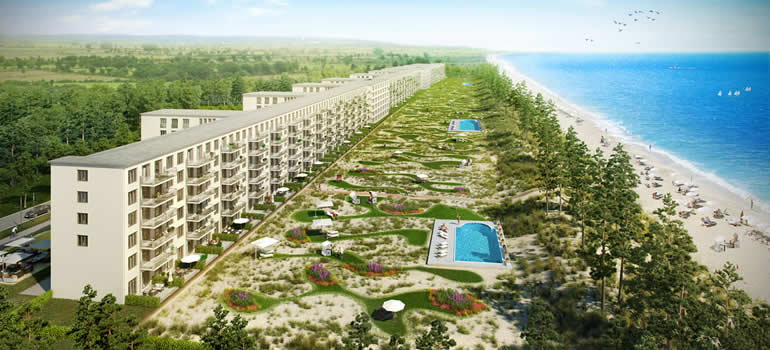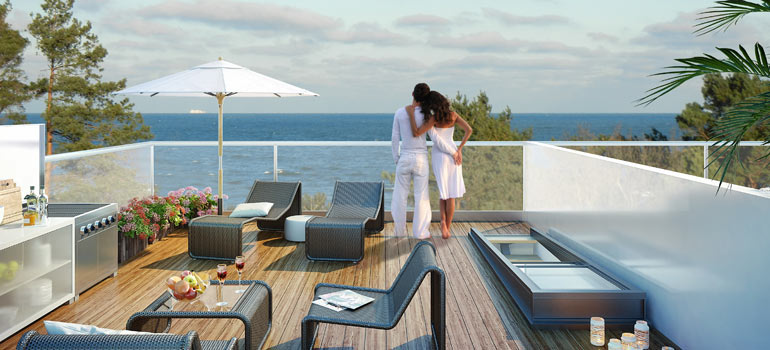Art World
Hitler’s Nazi Holiday Resort Turned into Luxury Flats
Gentrification seemingly knows no bounds.

Gentrification seemingly knows no bounds.

Skye Arundhati Thomas

As gentrification persists, so does the ingenuity of its forms: the Colossus of Prora, a Nazi-built complex on the island of Ruegen, off the Baltic coast, has recently received a rather extensive face-lift in the form of an €88 million ($98 million) renovation.
A paean to Hitler’s “Strength Through Joy” campaign, the complex was designed to combine holiday-making and “healthy exercise” with ideological training to shape a strong racial identity among the “Aryan” working-class.
Proposed by architect Clemens Klotz in 1936, for which he won the Grand Prix at the 1937 Paris World Exhibition, it was built by forced labor workers under strict Nazi instruction. The irony is not lost here: the refurbished site now boasts spa facilities, two art museums, a hipster burger joint and bakery (house special: latte macchiato).
With cream-colored facades and glass-lined balconies overlooking the sea, the Prora Solitaire complex now boasts 10,000 holiday apartments at €350,000 ($393,000) for a 100-square-meter ground floor flat, while a penthouse with sea views has a price of €650,000 ($730,000). According to AFP, it is slated to open this year with a 95 percent occupancy, thanks to tax rebates offered to investors of listed buildings, a robust German economy, and record-low interest rates.
Hilter’s project was halted in 1943 by the advent of war and the concrete skeleton was left to ruin. Under the communist state of Eastern Germany, it was a classified military barrack so secretive that it did not appear on civilian maps. Prisoners of war, refugees, and military conscripts have all been housed at Prora at one point or another. Most recently, it was a youth hostel, and last winter it was used to provide rooms for asylum seekers.

A couple enjoying the view in a rendering of the Prora Solitaire redevelopment. Photo courtesy of Metropole Marketing.
Katja Lucke, chief historian at a resident museum, argues that it is up to the on-site museums to shoulder the responsibility of activating the history of the region. The site does not yet have government support, and the museums are privately funded. This weekend’s election in Mecklenburg-West Pomerania, Chancellor Merkel’s home district, has proved the area to be radically right-wing, where the Alternative für Deutschland—a three-year-old anti-immigrant, anti-Muslim populist party—beat the Chancellor’s own Christian Democratic Union by a slight, but politically substantial margin.
How this might affect further extension plans for the complex’s full transformation into a luxury holiday destination is yet to be revealed.